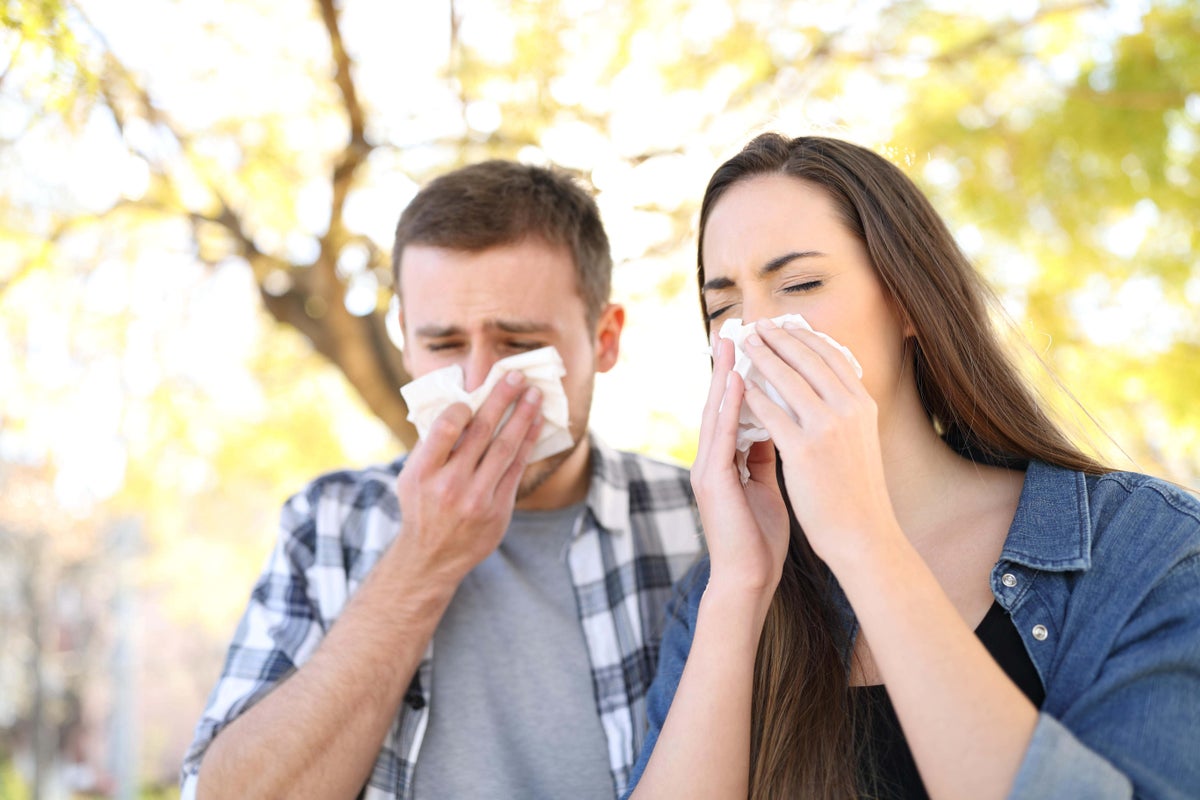What is RSV? And how to protect yourself

Health experts at NHS England have urged eligible pregnant women to get vaccinated against respiratory syncytial virus (RSV) ahead of winter to protect their newborns.
Australia experienced its highest-ever number of RSV cases last year, and NHS officials have said that the Australian winter is often a good predictor of how viruses will spread in England. Since the beginning of 2025, the virus has been steadily spreading, with nearly half of reported cases occurring in children under the age of five.
In response to this trend, Kate Brintworth, chief midwifery officer for NHS England, said: “Getting vaccinated while pregnant is the best way to protect your baby from the moment they are born, and now is the time for mums to act, to make sure their babies are protected ahead of their first few months this winter, when there tends to be more bugs circulating.”
But what exactly is RSV? And how does it spread? We spoke with Dr Andy Whittamore, GP and clinical lead at Asthma + Lung UK, who has highlighted the key symptoms to look out for and shared some strategies to help protect yourself and your family.
What is RSV?
“Respiratory syncytial virus is a virus that causes symptoms very similar to the common cold,” explains Whittamore. “Most of us get it at some point and don’t even know that we’ve had it.”
Up to 9 in 10 children will get RSV before they turn two years old and in older adults, around 175,000 people over the age of 65 go to their GP about RSV each year, according to Asthma + Lung UK.
How does it spread?
“Like most respiratory viruses, RSV spreads by people coughing and sneezing droplets from their own respiratory tract and it is spread to other people that way,” says Whittamore. “It is often spread and caught in the air, by contact or if it ends up on surfaces.”
While RSV can circulate year-round, it typically peaks during the colder months.
“We see a major peak in cases in the NHS between October and February, particularly in December/January time,” notes Whittamore.
What are the most common symptoms?
“As a GP, I see a lot of people with respiratory viruses and you can’t really tell whether it’s flu, Covid, RSV or the common cold,” says Whittamore. “Common symptoms are a runny nose, blocked nose, sneezing, coughing, feeling tired etc. People might also have a fever with it and if it’s affecting their respiratory system itself, they might experience breathless or wheezing as well.”
A high temperature is also another key sign to look out for, according to the NHS website.
“For most people, these symptoms tend to last no more than a week to 10 days,” says Whittamore.
Can it lead to any serious complications?
RSV can lead to some serious complications such as pneumonia or bronchiolitis for high-risk groups such as babies, young children and older people.
“What we see with RSV, especially in younger children under the age of two, is that it can cause bronchiolitis, which causes quite dramatic breathing effects which can quite often put people in hospital,” says Whittamore. “We are also seeing that RSV is having a big impact on people over 75. We know that in that age group, the virus is more likely to cause them problems with their breathing and could go on and cause pneumonia and is likely to increase their chances of going to hospital.”
The NHS website also states that people with weakened immune systems, or long-term lung or heart conditions, and people who smoke tobacco are also at risk.
A more serious infection (such as pneumonia or bronchiolitis) may cause a cough that gets worse, shortness of breath, noisy breathing (wheezing), faster breathing or long gaps between breaths, difficulty feeding in babies or loss of appetite, and confusion in older adults, according to the NHS website.
How is it treated?
RSV often gets better on its own in one or two weeks, so you can usually look after it at home.
“One important thing to do is to keep well hydrated,” say Whittamore. “People with RSV should be pushing their fluids, resting more, taking paracetamol and can usually monitor themselves. However, if you are worried about yourself or your child, then seek advice from your GP or call 111.”
Can it be prevented it?
There are some things you can do to reduce your chances of getting RSV or spreading it to anyone else.
“Make sure that when you are blowing your nose or sneezing that you use a tissue and throw it away,” advises Whittamore. “Also, remember to wash your hands and clean surfaces regularly.”
However, the GP stresses that the most important way to prevent people from becoming ill with RSV is to make sure you get the RSV vaccine if you are entitled to it.
The RSV vaccine is recommended if you’re pregnant (from 28 weeks of pregnancy) – to help protect your baby for the first few months after they’re born – or if you’re aged between 75 and 79.
New research from the UK Health Security Agency (UKHSA) has found the RSV vaccine is around 82% effective in preventing older people being hospitalised with an RSV infection.
“Most GP practices are contacting people and inviting them in, but if somebody thinks they’re eligible and haven’t been contacted they should contact their GP surgery and see if they can get it booked in,” recommends Whittamore.
[title_words_as_hashtags



